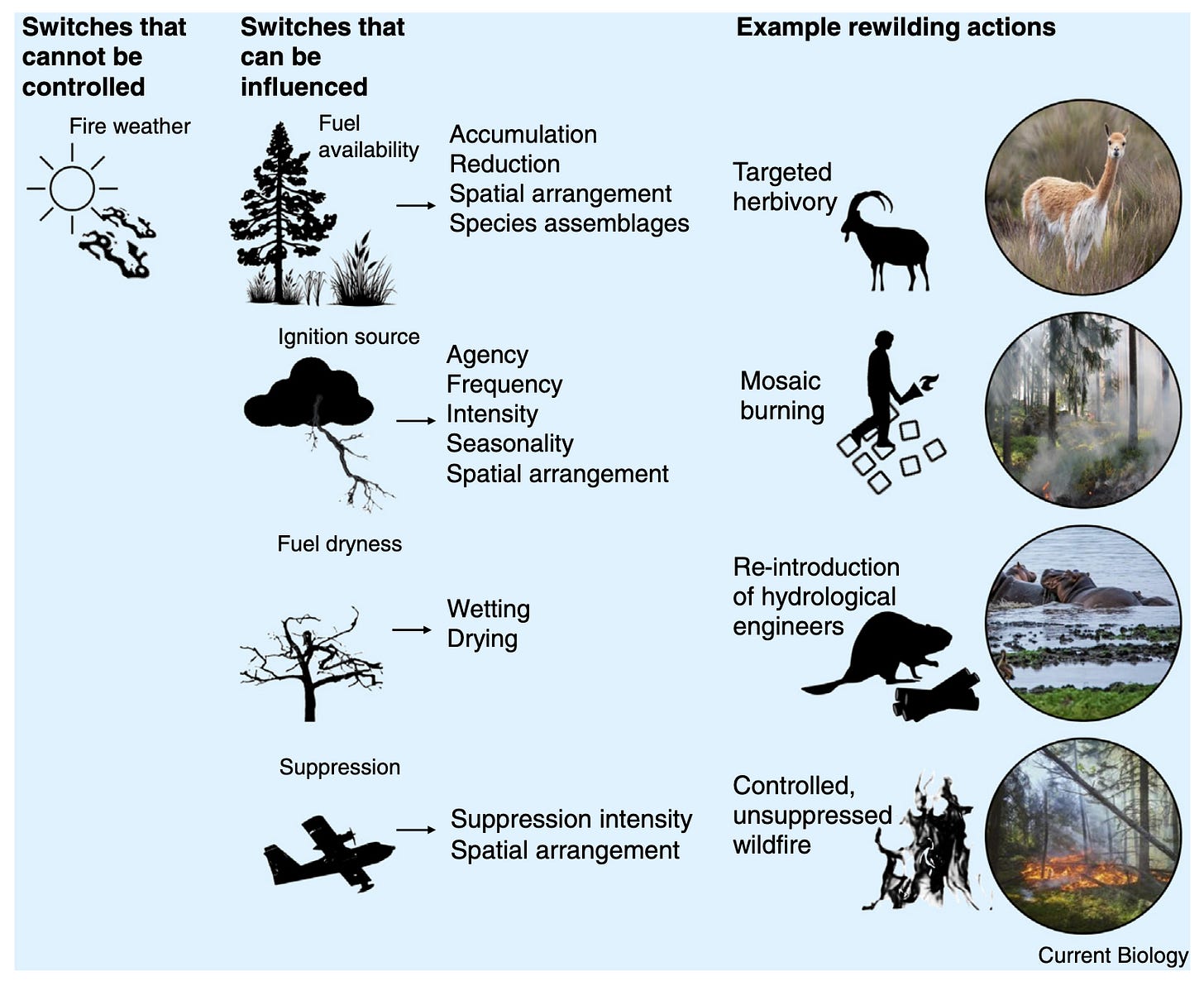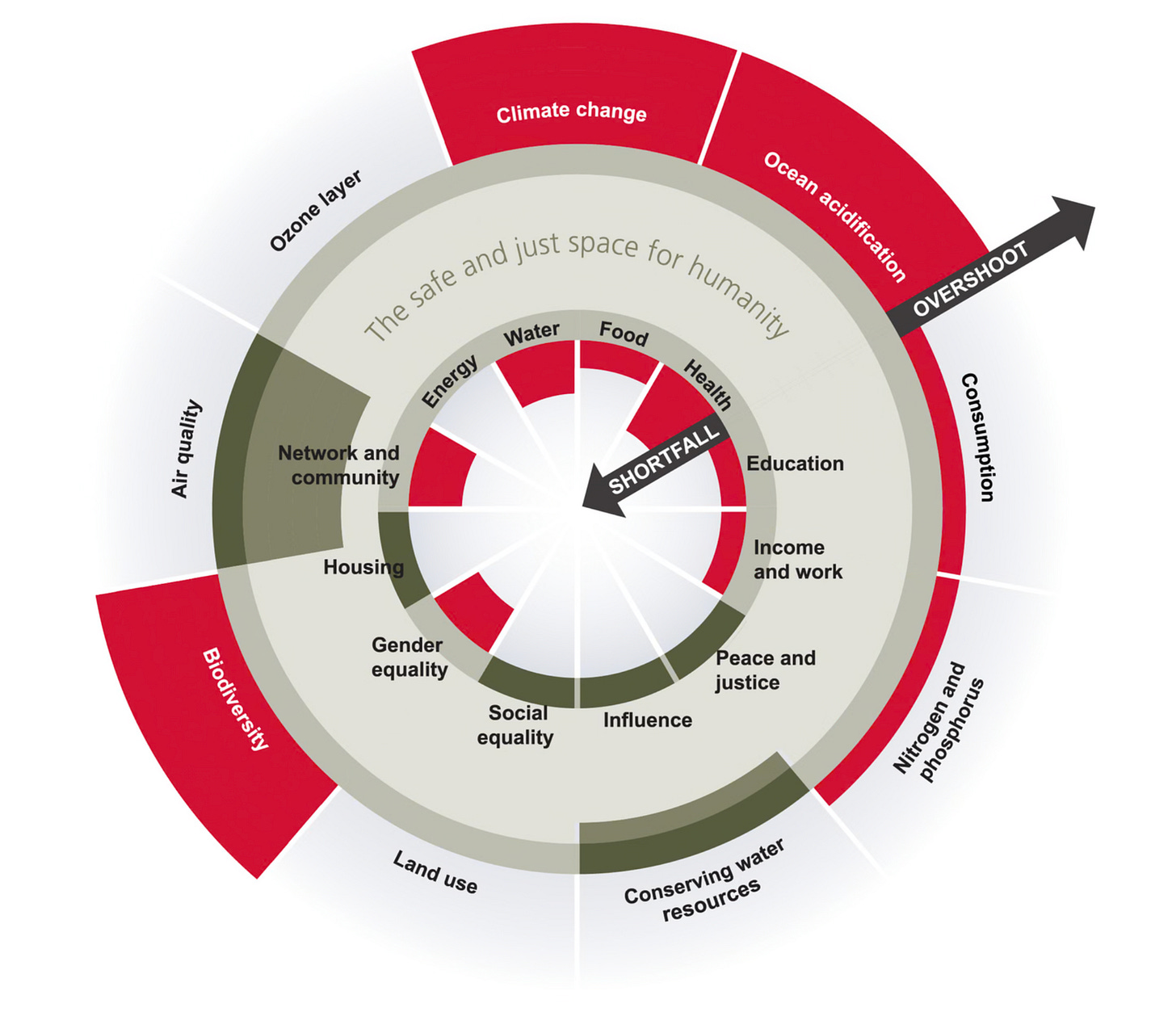Nexus Notes – Moa de-extinction, rewilding fire regimes, and a warning from the future
Nexus Notes #10
Welcome to Nexus Notes. These are quick thoughts from me designed to share things I’ve been up to, been reading or just any other random stuff I’ve come across I think you may enjoy for the week. Think of it as a bit of a link-fest with a few accompanying thoughts.

Hi folks!
Hope you’re having a great week. Here is your fortnightly dose of Nexus Notes a few days behind schedule. Last week’s post, Laying tracks while the train moves, had a very low delivery rate for some reason, so I’m linking it here in case you missed it. Don’t forget, there’s a day left on the special pay-what-you-can upgrade offer I sent around earlier in the week.
Last Nexus Notes location
Lake Maracaibo, Venezuela (situated mid-photo). The green swirls are duckweed, a group of floating aquatic plants I find fascinating as I mentioned last time. In Maracaibo, duckweed bloom when the lake de-stratifies and nutrient rich bottom-waters are brought up for floating aquatic plants to grow from.
Paper I’m reading
Plumanns-Pouton, E., T. R. M. Bakx, R. Buitenwerf, J. M. Espelta, F. Moreira, A. Regos, M. Selwyn, and L. Brotons. 2025. Restoring fire regimes through rewilding. Current Biology 35:R670–R686.
A useful review of the importance of natural fire regimes, how they’ve been altered, and how they interact with other important ecological processes. The authors discuss how rewilding can be used to help restore natural fire regimes to safeguard biodiversity and ensure the functioning of ecosystems. Rewilding is focused specifically on restoring natural ecological processes rather than just habitats or species.

Illegal fishing just got harder
An AI Breakthrough in Ocean Monitoring: Satellite Imagery Provides an Unprecedented View of Global Vessel Activity. Global Fishing Watch continues its efforts to increase transparency in human activity at sea. Check out their interactive map — it’s impressive what they’re doing.
In the news
Moa de-extinction! First the dire wolf, now the moa. Hmm. Colossal Biosciences are at it again. How about we put our efforts into saving what we have first? See some expert commentary here.
Conversation piece of the week
A warning from the future: the risk if NZ gets climate adaptation policy wrong today. My colleague Tom Logan has another piece out this week with Paula Blackett imagining New Zealand in 2050 and the consequences of poor policy decisions around climate adaptation that are made today. It’s worth a read to think about the dire situation we could be in without smarter decisions today. Hopefully the recent Tasman floods serve as another wake up call. After all, as my readers here hopefully know, rivers need more room to move!
Doughnut economics in action
A small town in Sweden is putting doughnut economics into practice. If you’re unfamiliar with doughnut economics, Kate Raworth came up with the concept, outlined in her 2017 book. Read about it here.

It’s Earth Overshoot Day this week
That’s the day we’ve used up all of Earth’s resources for the year (July 24th). More specifically, this is the date on which humanity’s demand for ecological resources and services in a given year exceeds what Earth can regenerate in that year. And it’s getting earlier every year. Time for change methinks.
Let me know your thoughts in the comments.
Have a fun week!
Jono






Celebrating that illegal fishing has been made harder! And I love that you included Earth Overshoot. These are such vital conversations for all of us to be having. ADORE YOUR WORK! <3
Is the picture of the Ganges-Padma river basin?